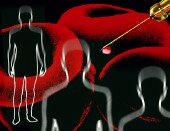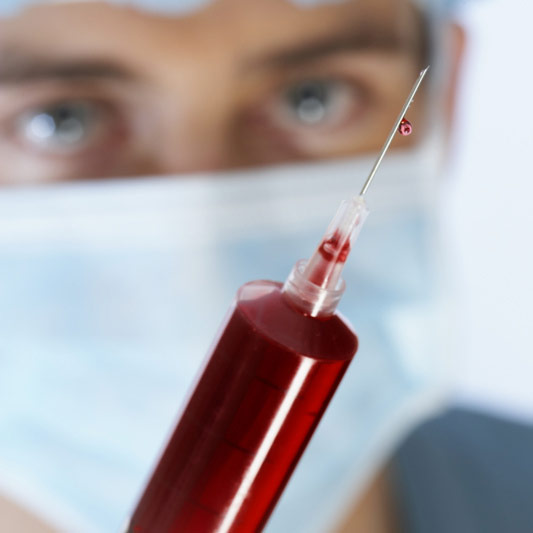
THURSDAY, May 3 (HealthDay News) — Researchers who found a way to rejuvenate aged blood-forming cells in mice say their achievement offers clues about how it may be possible to combat health problems associated with old age.
The study by scientists at Cincinnati Children’s Hospital Medical Center and Ulm University Medicine in Germany appeared online May 3 in the journal Cell Stem Cell.
Hematopoietic (meaning “to make blood”) stem cells, which originate in the bone marrow, produce all of the body’s red and white blood cells and platelets. As people age, these cells increase in number but become but less effective at generating new blood cells and immune cells. This makes older people more susceptible to infections and diseases, including leukemia.
In laboratory experiments with mouse cells, the researchers found that a specific protein that regulates cell aging also controls a process that causes blood-making stem cells to age. Using drugs to inhibit the action of this protein (called Cdc42) reversed aging of the hematopoietic stem cells and restored their function to a level similar to that of younger stem cells.
It had been believed that the aging of hematopoietic stem cells was locked in by nature and could not be reversed by using drugs, according to a hospital news release.
“Our findings suggest a novel and important role for Cdc42, and identify its activity as a target for ameliorating natural [hematopoietic stem cell] aging,” principal investigator Hartmut Geiger, of the University of Ulm, said in the release. “We know the aging of [these stem cells] reduces in part the response of the immune system response in older people, which contributes to diseases such as anemia and may be the cause of tissue attrition in certain systems of the body.”
Researchers say the next step is to test a protein inhibitor in mice to see how hematopoietic stem cells and various tissues respond. The researchers also are gathering samples of human blood-making stem cells for future lab tests.
Although studies involving animals can be useful, they frequently fail to produce similar results in humans.
More information
Visit the American Society of Hematology to learn about blood basics.

